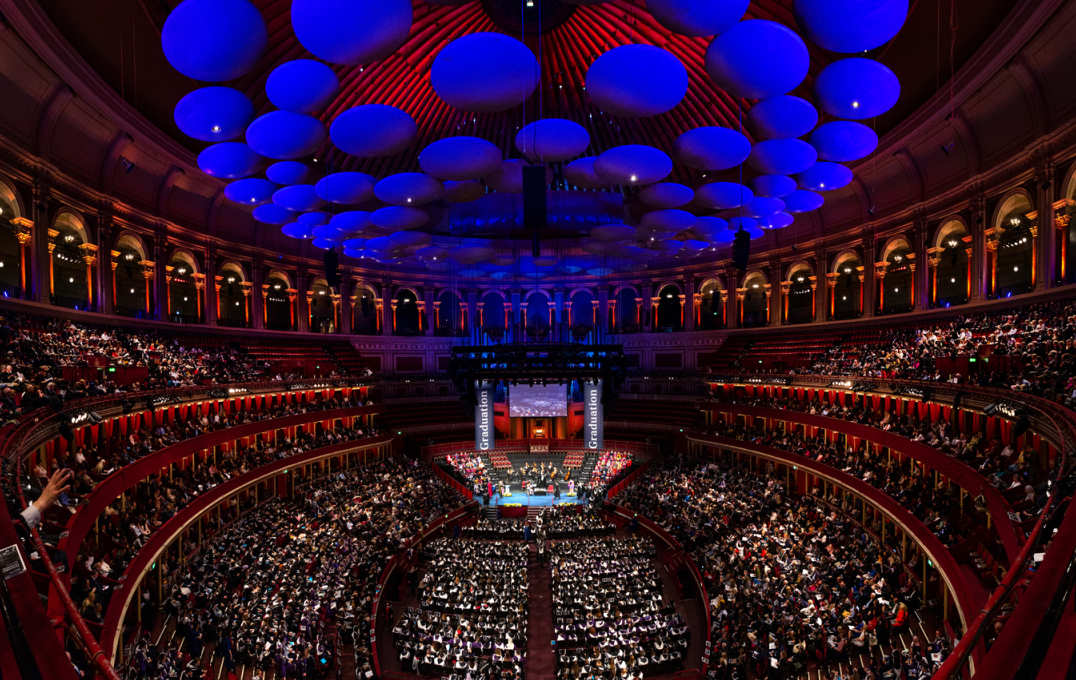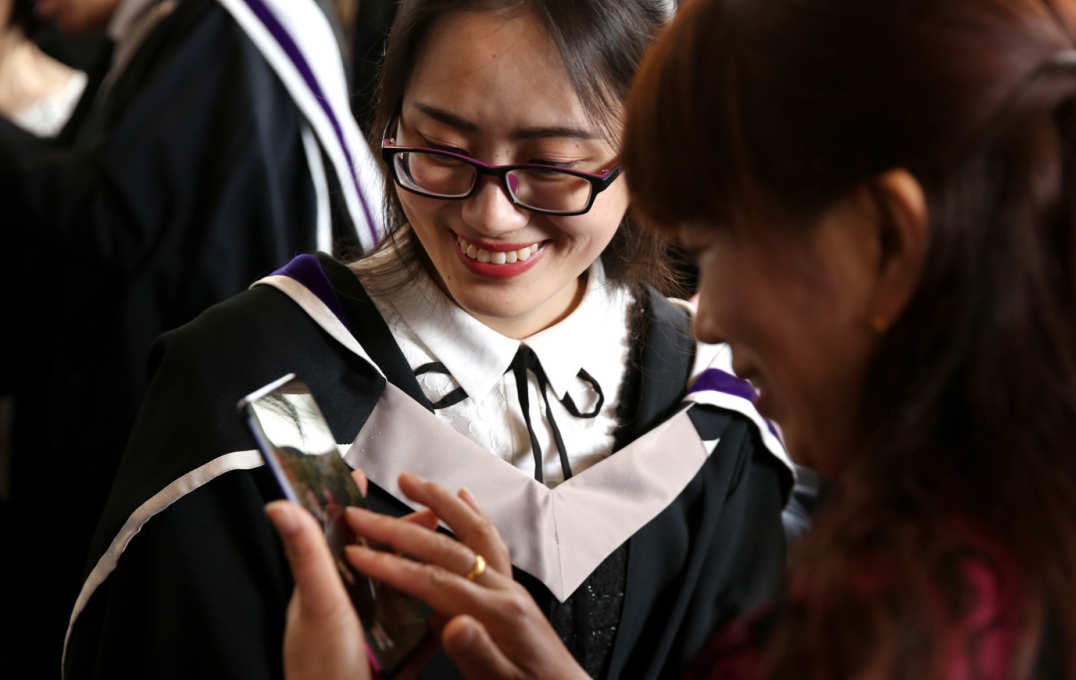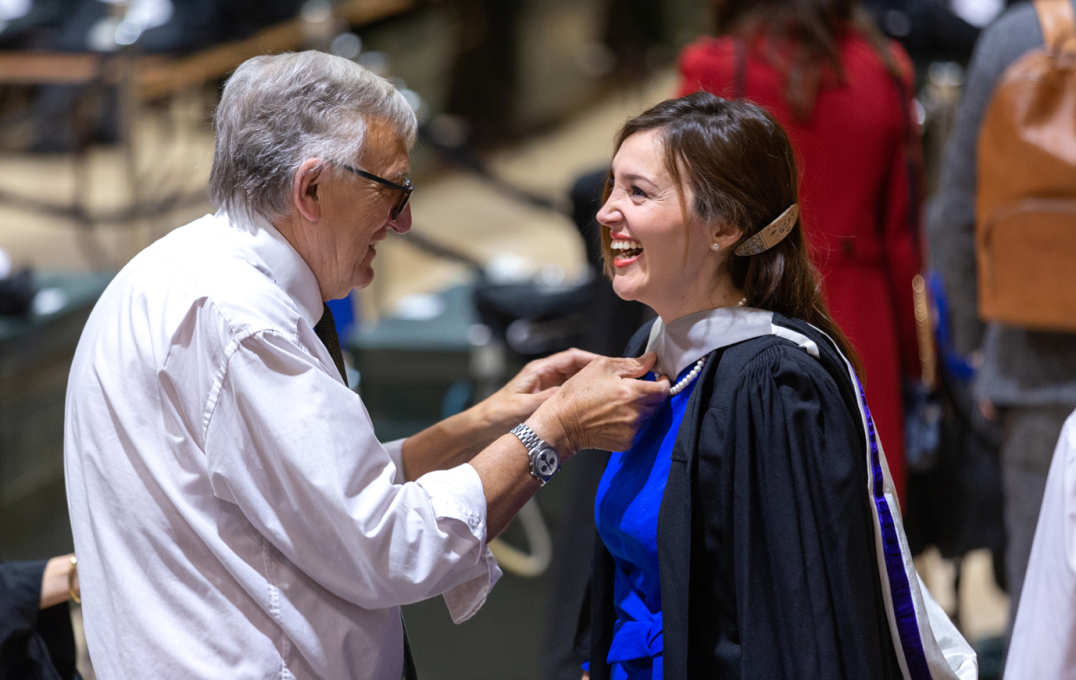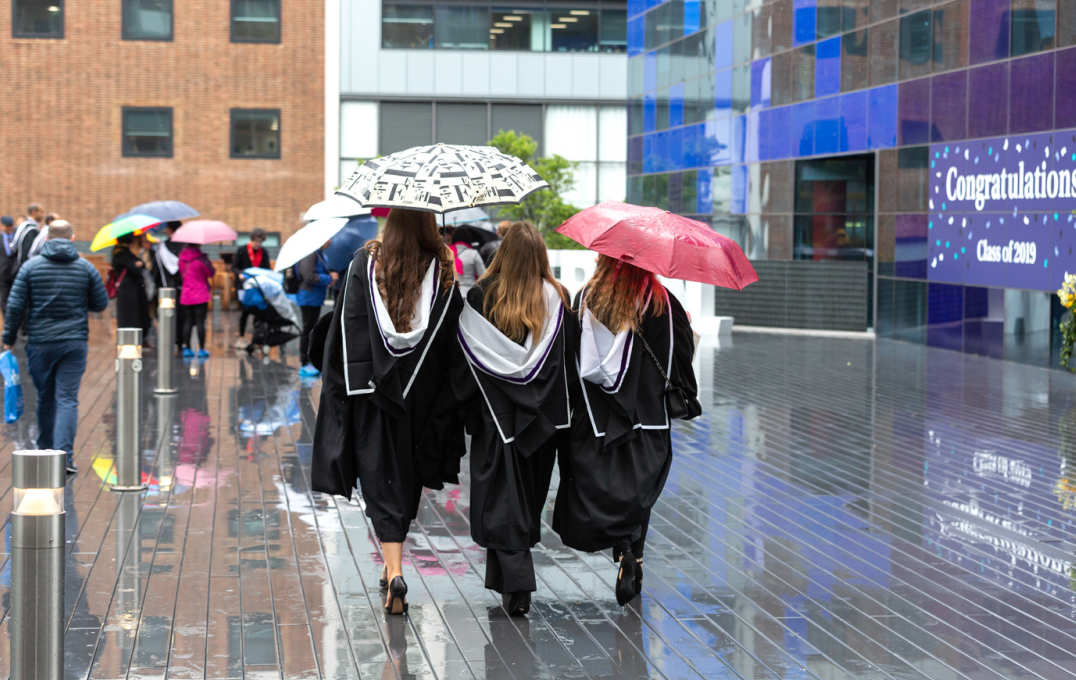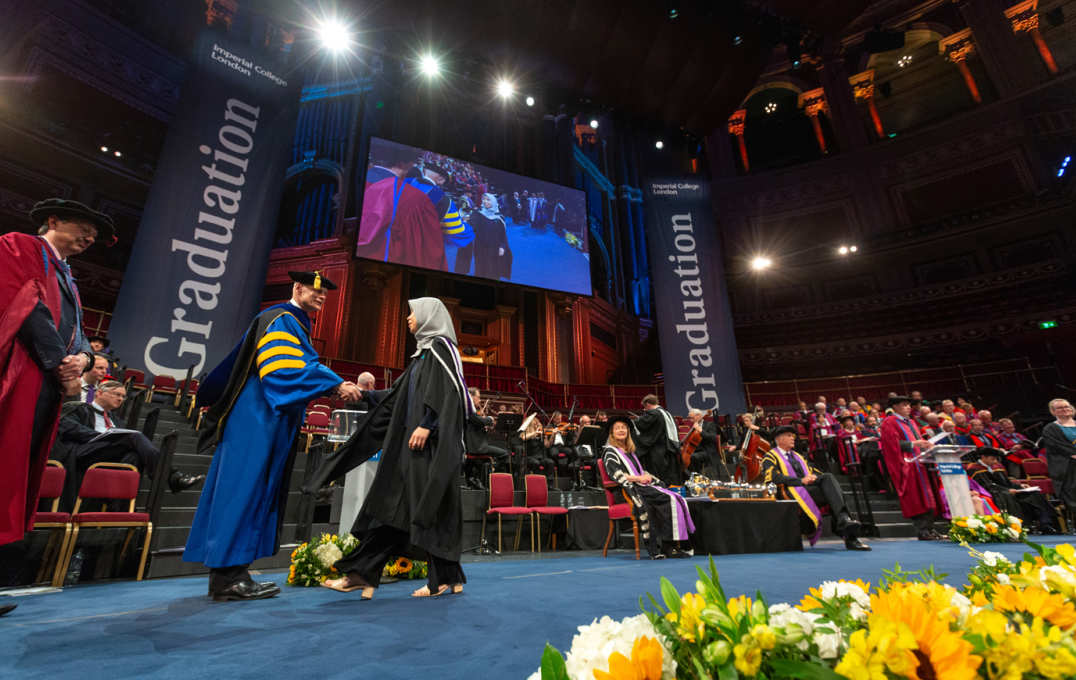“Seek opportunities to work with others from different backgrounds”
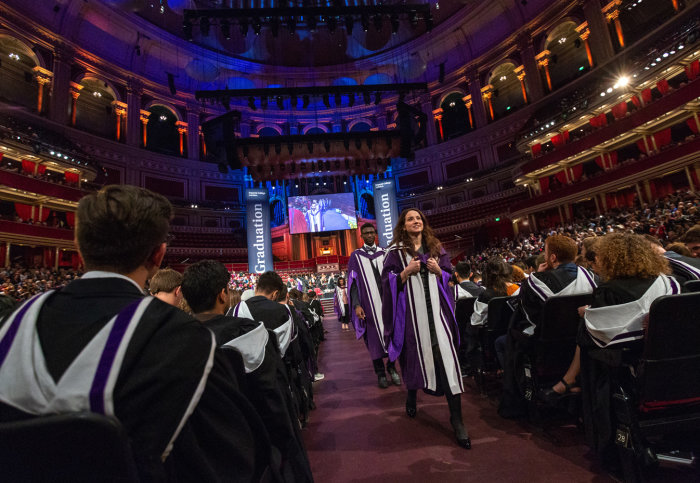
More than 3700 graduands attended ceremonies in the Royal Albert Hall to receive their postgraduate degree.
In the largest ever postgraduate graduation ceremonies, Imperial College London marked the achievements of new engineers, doctors, scientists and future business leaders as they took to the stage at the Royal Albert Hall, watched by over 8000 guests.
The ceremonies were hosted by Imperial’s President Professor Alice Gast. Addressing the audience of new graduates and their guests, Professor Gast urged graduating students to be international in their work and in their lives.
Speaking at the ceremony, President Alice Gast said: “Our different upbringings and our personal histories and cultures bring new insights, and lead to new approaches and to new discoveries. You have seen this in your collaborations in research groups, design teams, and study groups. When combined, our complementary strengths lead to better solutions.”
She said: “We see that Imperial’s international community, our collaborations, our partnerships, and our own experiences working with people from other cultures and places have an immeasurable and profound effect on the world.”
"I hope that you will be lifelong explorers, taking the knowledge and friendships you have made at Imperial to broaden your horizons and enrich the lives of others," she added.
Honorary degrees
The College also conferred honorary degrees on two people – CERN Director-General Dr Fabiola Gianotti and Professor David Gosman, an innovator in the field of computational fluid dynamics.
 Dr Fabiola Gianotti
Dr Fabiola Gianotti
Dr Fabiola Gianotti is one of the world’s most influential scientists. In 2016 Dr Gianotti was appointed as the first female Director General of CERN, the European Organization for Nuclear Research, where she oversees the operation of the Large Hadron Collider, as well as the laboratory that hosts the project.
Dr Gianotti has written over 550 publications in peer-reviewed scientific journals. She is a member of a number of international scientific committees and has received honorary doctorates from eleven universities around the world.
She will receive an Honorary Degree of Doctor of Science in recognition of her outstanding contribution to physics.
Professor David Gosman
 Professor David Gosman has been regarded as an innovator in the field of computational fluid dynamics for almost half a century.
Professor David Gosman has been regarded as an innovator in the field of computational fluid dynamics for almost half a century.
After finishing his PhD, Professor Gosman became a postdoctoral researcher at Imperial, before joining the academic staff and becoming Professor of Computational Fluid Dynamics. His research has focused on the development and application of general prediction methods in computational field dynamics for industry and the environment, and through his interest in the industrial applications of computation field dynamics, he was motivated to establish Computational Dynamics Ltd in 1987. The company went on to develop market-leading industrial thermofluids analysis codes, which are still used today across a variety of industries. The company’s code STAR-CD is regarded as the world’s ‘number one’ for engine analysis, and is used by a wide range of engine manufacturers and Formula 1 teams, including Mercedes, BMW, Ferrari and Lotus-Renault.
Professor Gosman is widely considered as a pioneer in his field. He is a Fellow of the Society for Automobile Engineers, of the Institution of Mechanical Engineers, and of the Royal Academy of Engineering. He will receive an Honorary Degree of Doctor of Science in recognition of his contribution to the field of computational fluid dynamics.
Imperial College Medals
The following people received Imperial College medals in recognition of their outstanding contribution to the life and work of the College.
Professor David Gann, former Vice-President (Innovation) of the College and founding head of the Business School’s Department of Innovation and Entrepreneurship.
Jeremy Newsum, former member of the Imperial College London Council for over 12 years and its longest serving member.
Emeritus Professor Samuel Eilon, founder and former head of the College’s Department of Management.
Outstanding Student Achievement Awards
The following students received awards for their outstanding achievements.
Dr Paladd Asavarut recently completed his PhD studies in the Department of Medicine, during which he set a gold standard for student representation of the College, taking on a number of roles that have benefitted Imperial as a whole. He is awarded for his outstanding contribution to Imperial College London.
Dan Kaplan, a postgraduate student from the Department of Mathematics, is passionate about communicating maths to school students, running an outreach maths club at a North London primary school and collaborating with Imperial’s STEM Potential programme. He is awarded for his outstanding contribution to Imperial College London.
President’s Medals
The following people received medals in recognition of their considerable contribution to the life and work of the College.
The Dhillo Research Group, led by Professor Waljit Dhillo, in recognition of their outstanding research.
The MRC Centre for Global Infectious Disease Analysis, led by Professor Neil Ferguson, in recognition of their outstanding research.
Dr Kim Jelfs, Department of Chemistry, for her outstanding contribution as an early career researcher.
Mr Andy Thomas, Research Computing Manager in the Department of Mathematics for his outstanding contribution to research support excellence.
The Centre for Process Systems Engineering, led by Professor Clair Adjiman, for their outstanding contribution to external engagement and partnerships.
Dr Krysia Bodia, Senior Lecturer in the Department of Computing, for her outstanding contribution to research supervision.
Professor Xiao Yun Xu, Professor of Biofluid Mechanics in the Department of Chemical Engineering, for her outstanding contribution to research supervision.
Dr Mirabelle Muûls, founder and programme director of the MSc Climate Change, Management and Finance, for her outstanding contribution to teaching excellence.
Article text (excluding photos or graphics) © Imperial College London.
Photos and graphics subject to third party copyright used with permission or © Imperial College London.
Reporter
Joanna Wilson
Communications Division
